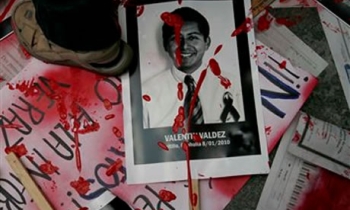(May 22 issue) "If I only had a little humility, I would be perfect." Ted Turner always managed to give us good quote. For that alone, we will miss the outrageous from Captain Courageous, as he became known for his yachting prowess. On May 19, Robert Edward Turner III bids adieu to the media world when he steps off the Time Warner Inc. (TWX ) board at the company's annual meeting in Atlanta. Except for his remaining 33 million Time Warner shares, Turner's resignation will sever his ties to the media industry, ending a prolific career that began in 1961 when the Brown University dropout joined his father's billboard business.
Even though Turner has been relegated to background status these past years, his footprints are all over the media landscape. A complicated mix of arrogance and vulnerability, Turner is one of the rare visionaries, like his arch-nemesis Rupert Murdoch, who trusts his gut over financial models. He was the first to see the potential of satellites to beam programming across the country. In 1976 he took local Atlanta UHF Channel 17 and transformed it into a "superstation." Where would TV's heavyweight, ESPN, be today without that first bold stroke?
Turner also hit on the concept of dual revenue streams for cable, taking the ad-supported broadcast model and adding to it new revenues from distribution fees. How much extra value has that created for programmers over the decades? In doing so, Turner helped turn once-backwater cable into a viable alternative to the Big Three networks. Cable pioneer John Malone may have coined the phrase "500-channel universe," but Turner helped make it a reality.
And though Turner may not have fully grasped the Internet's potential, he warmed up consumers to the idea of on-demand service. His 24/7 news channel CNN, launched in 1980, essentially took folks off prescheduled time grids. "This was such an important step...toward being able to [give consumers] random access," says his old friend Malone. "That was always the ultimate goal for all of us."
TODAY A NEW GENERATION has built cable empires using lessons from the maverick. "Every once in a while super-personalities come along, with their flaws for all the world to see, who do larger-than-life-work," says Brian Roberts, CEO of Comcast (CMCSA ), the No. 1 U.S. cable operator, and a onetime Turner Broadcasting board member. Roberts, who holds an undergraduate degree from Wharton, says his experience with Turner, especially on board trips to Russia and Cuba, was "my MBA."
When it comes to moguldom, Turner is retiring early at 67 (consider that Murdoch is 75 and Sumner Redstone a mere 82). But it could be that Turner is just tired of the game. Three years ago he lost the title of vice-chairman at Time Warner, and the board's decision in February to sell his Turner South sports network to Murdoch was the final straw, friends say. Living large for so long can wear you out. And how many media acts can you have? Remember, this was an executive who almost lost it all in the late 1980s, paying too much for MGM's (MGM ) film library before salvaging his company thanks to a bailout by fellow cable operators, including Malone's TCI.
Now Turner says he wants to devote time to his bison burger restaurant chain, Ted's Montana Grill, including an outlet set to open later this year in Time Warner's Time-Life building in New York. Mainly, though, he's a philanthropist -- he pledged $1 billion to the United Nations in 1997. Murdoch may be the most global media boss, but Turner truly embraced international issues. CNN's coverage of far-flung wars, famines, and natural disasters helped to make the world a smaller place. "The other guys focus on their global businesses," says Brad Siegel, vice-chairman of the Gospel Music Channel, who worked for Turner for a decade. "Ted's world interests are far more broad. He wants to make sure it is secure, clean, and that it doesn't get blown up."
In an era of scripted, Sarbanes-Oxley-cautious executives, the media business won't be as much fun without Ted and his wicked tongue. "He provided the core humor for our industry for years," says Malone. Not to mention the core concept.









